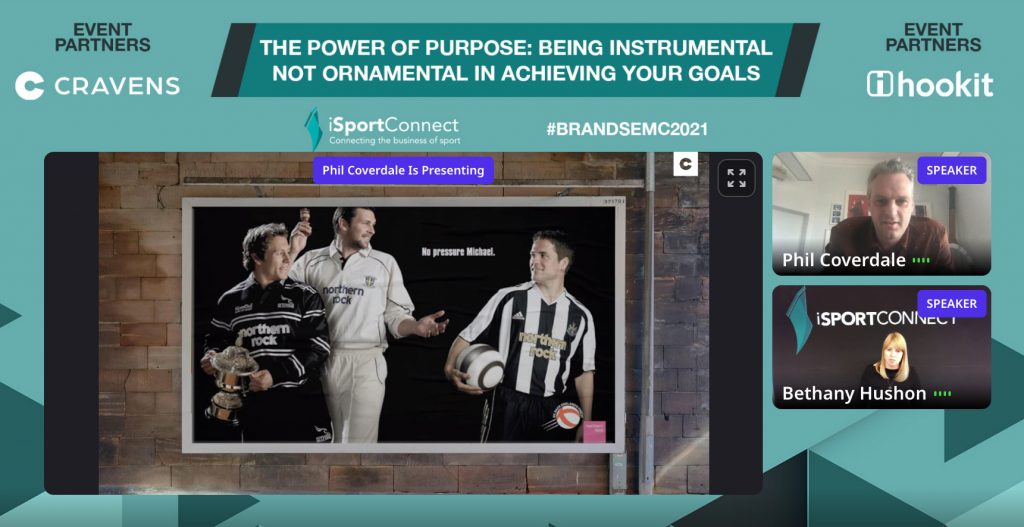The Power of Purpose
July 15, 2021
“The true power of purpose is when purpose is instrumental to an organisation’s goals and what it seeks to achieve.” – Phil Coverdale, Managing Director of Cravens.
Over the past couple of years, there has been a shift in the commercialisation of brands within the sports industry, with their purpose becoming a key driver in aligning with rights holders. This new, dynamic and complex element of non-commercial messaging has given influence and power to brands with positive associations.
Competitions such as Extreme-E are at the forefront of these new purposeful initiatives in sport. A motor racing series featuring electric off-road vehicles, which takes place in areas of the planet affected by climate change, showcases these issues and becomes a proponent for more environmental efforts.
“It must not be forgotten that by having a true purpose it can be of great commercial value”
Many others are now starting to match these efforts, with numerous football clubs, including Arsenal FC and Liverpool FC, and sporting organisations, such as Paris 2024, signing up for the UN’s Climate Action Framework. This in turn, is having an impact on brands who have a business interest in sport – all leading back to ‘the power of purpose’.
Brands looking to be involved with sport sponsorship are deciding it is of great importance to be involved with those who have a strong purpose that fits in with what the brand wants to embody.
However, brands don’t solely join forces with sport on this basis, it must not be forgotten that by having a true purpose it can be of great commercial value – as consumers are more likely to want to support them.
“Looking at the ethics of purpose more than 90% of CEOs believe their companies need to adopt a broader measure of success not just profits but social goals” – McKinsey and Company.

Phil Coverdale, Managing Director of Cravens, last week presented on ‘The Power of Purpose’ during iSportConnect’s latest Brands eMasterclass, stating that; “When getting purpose right, and when it’s really powerful, it has the ability to inspire communities, colleagues and also the commercial bottom line as well.”
“Organisations that truly have that sense of motivation, not just what they do or how they go about it but why they exist, have the potential to really outperform those that don’t,” Phil added.
Purpose provides a framework for decision making, linking short-term action to long-term goals and longevity. You should be looking to inspire ‘on purpose’ through:
- Product
- Experiences
- Processes
- Culture
- Communication
- Innovation
This, however, is not just through a marketing message. Purpose needs to be aligned throughout the organisation and at the forefront of how the business is run. Corporate Social Responsibility (CSR) should not be institutionally separate from the core business, but part of the existence of everything a brand does.
“When you look at London 2012 – it had a clear sense of the event they wanted to deliver, inclusivity and legacy.”
Organisations that have attempted to ‘cover up’ areas of their business by using CSR projects have often been caught out by people exposing their hypocrisy in alignment with these programmes.
As Phil discussed in his presentation: “There is a danger of the pitfalls of PR purpose… or indeed overstating what this CSR purpose actually means in the real world of business.”
“When you look at London 2012 – it had a clear sense of the event they wanted to deliver, inclusivity and legacy. Whether that was through ticket pricing, the way they did the torch relay or the opening ceremony, the way the Games-makers played such a fundamental part. They were saying – this is for everyone.”
Cravens work with a number of major brands both inside and outside of the world of sport, but the key message remains the same for every company – the reason for purpose in organisations is through the power it can produce through inspiration.


